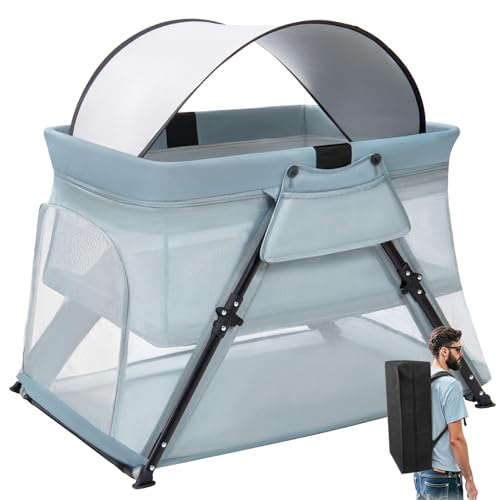Sleep Does a Newborn Bringing a newborn baby home is a joyous, albeit exhausting, experience. Amidst the diaper changes, feedings, and endless cuddles, one question looms large in the minds of new parents: How much sleep does my newborn really need? Understanding newborn sleep patterns is crucial not only for your baby’s healthy development but also for your own well-being. This comprehensive guide will delve into the intricacies of newborn sleep, offering insights and practical advice to navigate those first few months.
Why is Sleep So Important for Newborns?
Sleep is not merely a period of rest; it’s a fundamental biological process vital for a newborn’s growth and development. During sleep, a baby’s body and brain are hard at work, consolidating memories, processing information, and releasing hormones that promote physical growth. Here’s a closer look at the key benefits of adequate sleep for newborns:
- Brain Development: A significant portion of brain development occurs during sleep. Sleep allows the brain to form new connections and strengthen existing ones, which are essential for cognitive, motor, and emotional development.
- Physical Growth: Growth hormone is primarily released during sleep. Adequate sleep ensures that your baby’s body has the opportunity to grow and develop properly.
- Immune System Function: Sleep plays a crucial role in regulating the immune system. Sleep deprivation can weaken the immune system, making babies more susceptible to infections and illnesses.
- Emotional Regulation: Sufficient sleep helps babies regulate their emotions and cope with stress. Sleep-deprived babies may be more irritable, fussy, and difficult to soothe.
- Overall Health: Insufficient sleep in infants has been linked to increased risk for injuries, and potential long-term health issues
How Many Hours of Sleep Does a Newborn Need?
The general recommendation is that newborns (from birth to 3 months) need approximately 14 to 17 hours of sleep in a 24-hour period. Some newborns may even sleep up to 18-19 hours a day. However, it’s important to remember that this is just a general guideline, and individual sleep needs can vary.
- Individual Variation: Just like adults, babies have different sleep needs. Some babies naturally require more sleep than others. Factors such as temperament, feeding patterns, and overall health can influence a baby’s sleep duration.
- Fragmented Sleep: Newborns typically sleep in short bursts, ranging from 30 minutes to 3 hours, with awake periods of about 2 hours in between. This fragmented sleep pattern is due to their small stomachs and the need for frequent feedings.
- Nocturnal Awakening: It’s completely normal for newborns to wake up frequently during the night. They need to be fed every 2-3 hours in the early weeks, and their sleep cycles are still developing.
Understanding Newborn Sleep Cycles
Newborn sleep cycles are different from those of adults. They are shorter and consist of two main stages:
- REM (Rapid Eye Movement) Sleep: This is a state of active sleep characterized by rapid eye movements, irregular breathing, and brain activity similar to wakefulness. REM sleep is important for brain development and memory consolidation. Newborns spend about 50% of their sleep time in REM sleep.
- NREM (Non-Rapid Eye Movement) Sleep: This is a state of quiet sleep characterized by slow, regular breathing and decreased brain activity. NREM sleep is important for physical restoration and growth.
Because newborns spend a significant amount of time in REM sleep, they are more easily awakened than adults. This is why they often stir and fuss during sleep.
Establishing Healthy Sleep Habits for Your Newborn
While newborns don’t immediately adhere to a strict sleep schedule, you can start establishing healthy sleep habits from day one. Here are some tips to promote better sleep for your baby:
- Create a Consistent Bedtime Routine: A calming bedtime routine can signal to your baby that it’s time to sleep. This could include a warm bath, a gentle massage, reading a book, or singing a lullaby.
- Put Baby Down Drowsy But Awake: This helps your baby learn to fall asleep independently. When your baby is drowsy but not fully asleep, place them in their crib or bassinet.
- Create a Sleep-Conducive Environment: Make sure the room is dark, quiet, and cool. A white noise machine can help block out distracting sounds.
- Respond to Your Baby’s Cues: Pay attention to your baby’s sleep cues, such as yawning, rubbing their eyes, or becoming fussy. Putting them down for a nap or bedtime when they show these signs can prevent overtiredness.
- Be Patient and Consistent: It takes time for babies to develop regular sleep patterns. Be patient and consistent with your efforts, and don’t get discouraged if your baby doesn’t sleep through the night right away.
Common Newborn Sleep Challenges and How to Address Them
Navigating newborn sleep can be challenging. Here are some common sleep issues and strategies to address them:
- Colic: Colic is characterized by excessive crying and fussiness, often in the late afternoon or evening. While the exact cause of colic is unknown, it can disrupt a baby’s sleep. Soothing techniques such as swaddling, gentle rocking, and white noise can help calm a colicky baby.
- Gas: Gas can cause discomfort and interfere with sleep. Burping your baby frequently during and after feedings can help prevent gas buildup.
- Reflux: Reflux occurs when stomach contents flow back up into the esophagus, causing irritation and discomfort. Keeping your baby upright for 20-30 minutes after feedings can help reduce reflux.
- Overtiredness: An overtired baby may have difficulty falling asleep and staying asleep. Watch for early sleep cues and put your baby down for a nap or bedtime before they become overtired.
- Sleep Associations: Babies can develop sleep associations, which are things they associate with falling asleep, such as being rocked, fed, or held. While these associations can be comforting, they can also make it difficult for your baby to fall asleep independently. Gradually wean your baby off these associations by putting them down drowsy but awake.
Safe Sleep Practices for Newborns
Ensuring a safe sleep environment is paramount for newborns. Follow these guidelines to reduce the risk of sudden infant death syndrome (SIDS):
- Always place your baby on their back to sleep: This is the safest sleep position for newborns.
- Use a firm, flat sleep surface: A crib mattress that meets safety standards is essential.
- Keep the crib bare: Avoid using pillows, blankets, bumpers, or toys in the crib. These items can pose a suffocation risk.
- Share a room, not a bed: The American Academy of Pediatrics recommends that babies sleep in the same room as their parents for at least the first six months, but in a separate crib or bassinet.
- Avoid overheating: Dress your baby in light clothing and keep the room at a comfortable temperature.
When to Seek Professional Help
While most newborn sleep issues are normal and resolve on their own, there are times when it’s important to seek professional help. Consult with your pediatrician if you have concerns about any of the following:
- Your baby is consistently sleeping significantly less than the recommended amount.
- Your baby has difficulty breathing during sleep.
- Your baby is excessively fussy or irritable.
- You are concerned about your baby’s weight gain or overall health.
The Impact of Sleep Deprivation on Parents
It’s crucial to acknowledge the profound impact that newborn sleep patterns (or lack thereof!) can have on parents. Sleep deprivation can lead to:
- Increased stress and anxiety: The constant demands of caring for a newborn, coupled with sleep loss, can take a toll on mental health.
- Difficulty concentrating: Sleep deprivation impairs cognitive function, making it difficult to focus and make decisions.
- Increased risk of accidents: Fatigue can increase the risk of accidents, such as car crashes.
- Weakened immune system: Sleep deprivation can weaken the immune system, making parents more susceptible to illness.
- Relationship strain: The stress of caring for a newborn can strain relationships between partners.
Prioritizing Self-Care:
It’s essential for new parents to prioritize self-care and seek support when needed. Here are some tips for managing sleep deprivation:
- Take naps when your baby naps: Even a short nap can make a big difference.
- Enlist help from family and friends: Ask for help with household chores, errands, or childcare so you can get some rest.
- Take turns with your partner: If possible, alternate nighttime feedings and diaper changes so you can each get some uninterrupted sleep.
- Practice relaxation techniques: Deep breathing, meditation, or yoga can help reduce stress and promote relaxation.
- Seek professional help if needed: If you are struggling with postpartum depression or anxiety, don’t hesitate to seek professional help.
Conclusion
Understanding newborn sleep is a journey, not a destination. There will be nights filled with blissful slumber and others marked by seemingly endless wakefulness. Remember that every baby is unique, and what works for one may not work for another.
Be patient, trust your instincts, and seek support when you need it. By establishing healthy sleep habits, creating a safe sleep environment, and prioritizing self-care, you can navigate the challenges of newborn sleep and enjoy this precious time with your little one.
While babies develop their own sleep preferences and habits as they get older, there’s also no evidence that any specific sleep change is “permanent”.
References:
- Taking Cara Babies. (2025, March 3). Newborn Sleep Schedule. https://takingcarababies.com/newborn-sleep-schedule?srsltid=AfmBOorEaeR0kt4VZ0a09jccLgJ843bBNFxyPGSxlLxVO-PaF0xz_mn
- Nemours KidsHealth. (2022, July 5). Sleep and Your Newborn (for Parents). https://kidshealth.org/en/parents/sleepnewborn.html
- What to Expect. (2022, May 19). Here’s How Much Sleep Babies Need. https://www.whattoexpect.com/first-year/sleep/how-much-sleep-do-babies-need/
- Cleveland Clinic. (2023, June 15). Sleep in Your Baby’s First Year. https://my.clevelandclinic.org/health/articles/14300-sleep-in-your-babys-first-year
- Huckleberry. (2025, January 28). Do newborn babies need a sleep schedule? https://huckleberrycare.com/blog/foundational-newborn-sleep-habits
- Sleep Foundation. (2023, April 26). Infant Sleep Cycles: How Are They Different From Adults? https://www.sleepfoundation.org/baby-sleep/baby-sleep-cycle
- VNA Health Care. (2022, May 19). How Sleep Impacts a Baby’s Growth. https://vnahealth.com/how-much-sleep-should-a-baby-get-and-how-it-impacts-their-growth/
- CDC. (2021, September 24). Short Sleep Duration Among Infants, Children, and Adolescents. https://www.cdc.gov/mmwr/volumes/70/wr/mm7038a1.htm
- BBC. (2022, February 8). The science of healthy baby sleep. https://www.bbc.com/future/article/20220131-the-science-of-safe-and-healthy-baby-sleep
I’m Cris Coelho, and motherhood has transformed my life!
As a speech therapist and early childhood educator, I’ve always been passionate about child development. But it was becoming a mother that truly opened my eyes to the real challenges and joys of this journey.
Here at Materníssima, I share everything I’ve learned — blending professional knowledge, real-life experience, and a heartfelt touch.
You’re very welcome here! 💕








